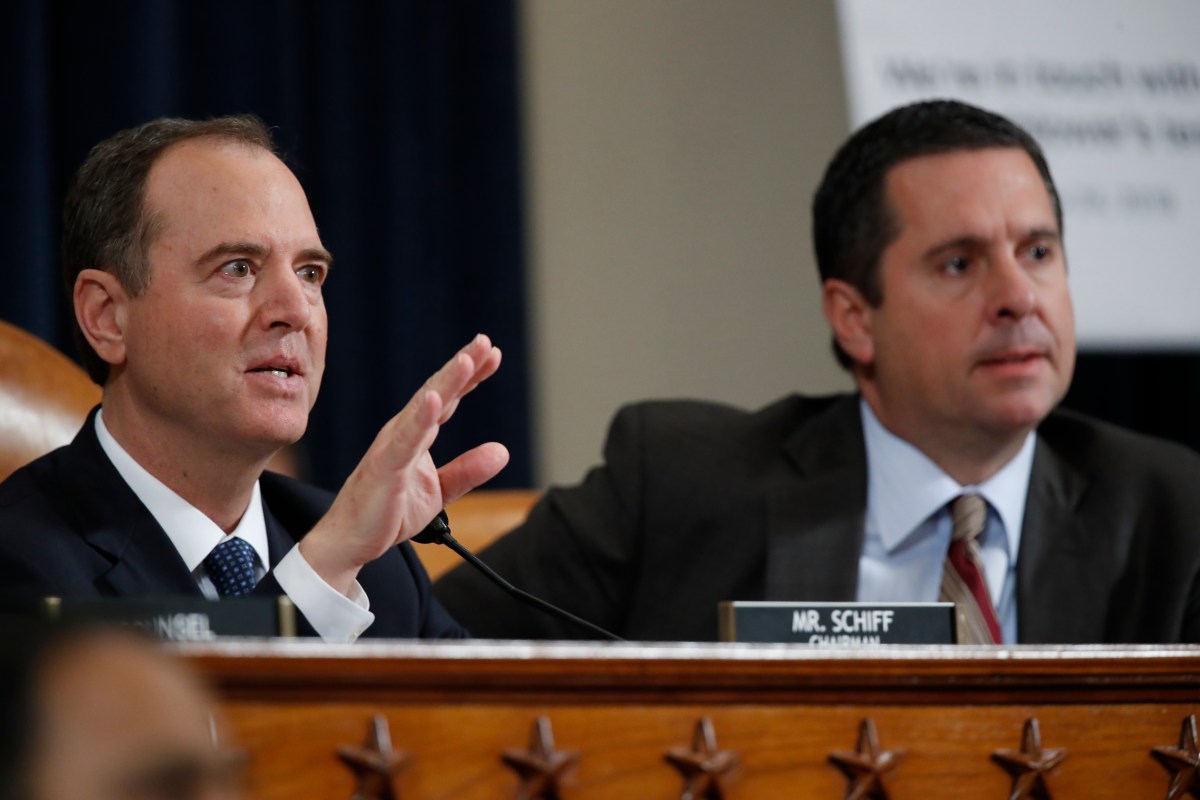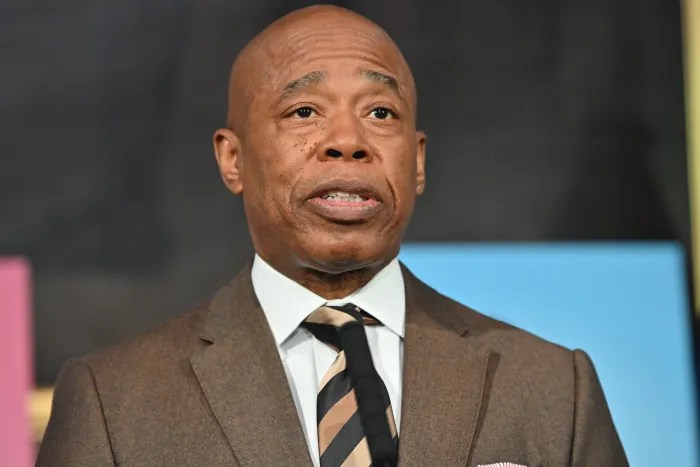A career Army officer. A career foreign service official. Both had a consistent message during Day 3 of the House impeachment inquiry, and each was troubled by the phone call between President Donald Trump and the president of Ukraine.
Here are some takeaways from Tuesday’s testimony:
‘CONCERNED BY THE CALL’
Republicans have consistently criticized the House impeachment inquiry by saying witnesses didn’t have firsthand knowledge of President Donald Trump’s role in trying to persuade Ukraine to investigate a chief political rival.
On Day 3 of the proceedings, that posture is suddenly more difficult to maintain.
The two witnesses in Tuesday morning’s session each listened to the July 25 phone call in which Trump prodded his Ukrainian counterpart to investigate Democratic rival Joe Biden.
Jennifer Williams, an adviser to Vice President Mike Pence, said she considered the call “unusual” since it “involved discussion of what appeared to be a domestic political matter.”
Former Ukraine envoy Kurt Volker testified on Tuesday that Biden “respects his duties of higher office” and it is not credible that he would act in any way other than in the national interest.
Army Lt. Col. Alexander Vindman, who arrived for the hearing in military uniform adorned with medals, went even further. He considered it “improper,” and, acting out of “duty,” reported his alarm to a lawyer for the National Security Council.
“I privately reported my concerns, in official channels, to the proper authorities in the chain of command. My intent was to raise these concerns because they had significant national security implications for our country,” Vindman said.
ATTACKS ON VINDMAN
Republicans leveled early and frequent attacks on Vindman’s credibility, even lacing an occasional nicety with a not-so-veiled barb.
Republican Rep. Chris Stewart thanked Vindman, who was wounded by a roadside bomb in Iraq and awarded the Purple Heart, for his service. Yet Stewart also wondered aloud why Vindman felt it necessary to wear his uniform rather than a suit to the hearing.
He wanted to know, too, if Vindman always insisted on being referred to by military rank rather than “Mr.” as he did in an exchange earlier with Rep. Devin Nunes, the top Republican on the committee.
The committee attacks on the current NSC official mirrored the combative approach of the White House, which used its official Twitter account to retweet attacks on Vindman, who continues to work at the White House.
Some Republican attacks struggled to land. After Rep. Jim Jordan suggested that Vindman’s peers questioned his judgment, Vindman read aloud from a glowing performance review that called him “brilliant” and “unflappable.”
Some attacks, including from the White House’s director of social media, even sought to imply that Vindman, a naturalized American citizen who was a toddler when his family fled Ukraine, may have dual loyalties toward the former Soviet Republic.
Under questioning from GOP impeachment counsel Steve Castor, Vindman revealed that he was offered three times the post of Ukraine’s defense minister while attending the inauguration of Ukrainian President Volodymyr Zelenskiy but “immediately dismissed these offers.”
He says two American officials witnessed the exchange with a top adviser to Zelenskiy, and that he notified his chain of command and counterintelligence officials upon returning to the U.S.
Castor questioned whether that created the impression of a conflict, to which Vindman replied, “It’s more important what my American chain of command thinks.”
PENCE ROLE?
Pence has been portrayed largely as out of the loop about Trump’s request that Ukraine investigate Biden. The public testimony by Williams refocused attention on what Pence knew about the events that sparked the House impeachment investigation.
But Pence’s office says the vice president and Williams barely interacted.
Williams, a career foreign service officer who was detailed to Pence’s office from the State Department, compiled briefing materials for Pence on Ukraine. She was in the room when he met with Zelenskiy in September and was among the staffers in the Situation Room who listened and took notes during the July 25th call.
Katie Waldman, a Pence spokeswoman, noted that Williams’ appointment began April 1 and said she “she doesn’t directly report to the Vice President.”
Pence failed to come to Williams’ defense when Trump recently tweeted that she should meet with “the other Never Trumpers, who I don’t know & mostly never even heard of, & work out a better presidential attack!”
Williams said she was confused by the attack and “would not” consider herself a “Never Trumper.”
WHITE HOUSE REAL-TIME RESPONSE
The White House reacted to the impeachment inquiry in real time Tuesday, stepping up its engagement after facing persistent complaints from Republican allies that it wasn’t doing enough to counter allegations against the president.
White House press secretary Stephanie Grisham slammed the first round of interviews Tuesday as further evidence that Democrats are “blinded by their hatred for Donald Trump and rabid desire to overturn the outcome of a free and fair election.”
And Trump, speaking during a Cabinet meeting, called the proceedings a “disgrace” and “kangaroo court,” while praising Republican lawmakers for “killing it.”
After being criticized by outside Trump allies for failing to adequately defend the president, the White House sent a steady stream of “rapid response” emails to reporters beginning before the first witnesses were even sworn-in. The messages sought to defend Trump and undermine the credibility of the witnesses.
“The President of the United States determines American foreign policy – not unelected bureaucrats,” said one email, as the White House argued that the career officials testifying had a policy dispute with Trump about Ukraine. “It’s the job of bureaucrats to implement that agenda set by the President – not leak and undermine him at every turn.”
“Williams’ prior testimony offered nothing but personal opinion and conjecture over a call that all Americans can see for themselves was perfectly appropriate,” the White House said.
Trump was criticized by Democrats for his push-back efforts last week, when he tweeted out an attack on another witness, former Ambassador to Ukraine Marie Yovanovitch, as she was speaking.
— Eric Tucker, Zeke Miller and Jill Colvin, Associated Press




































